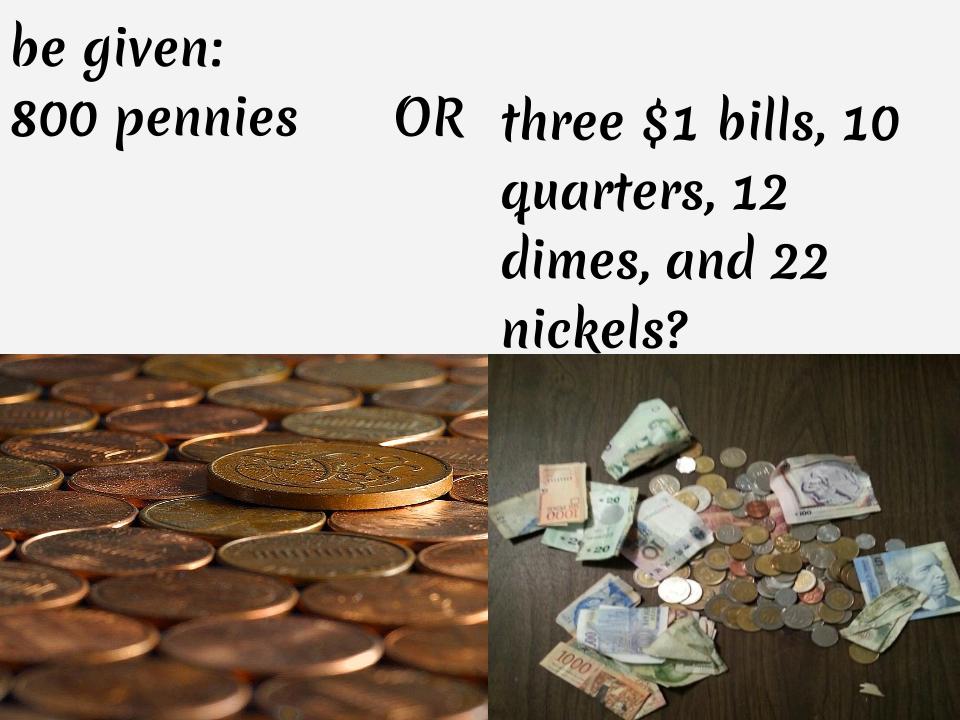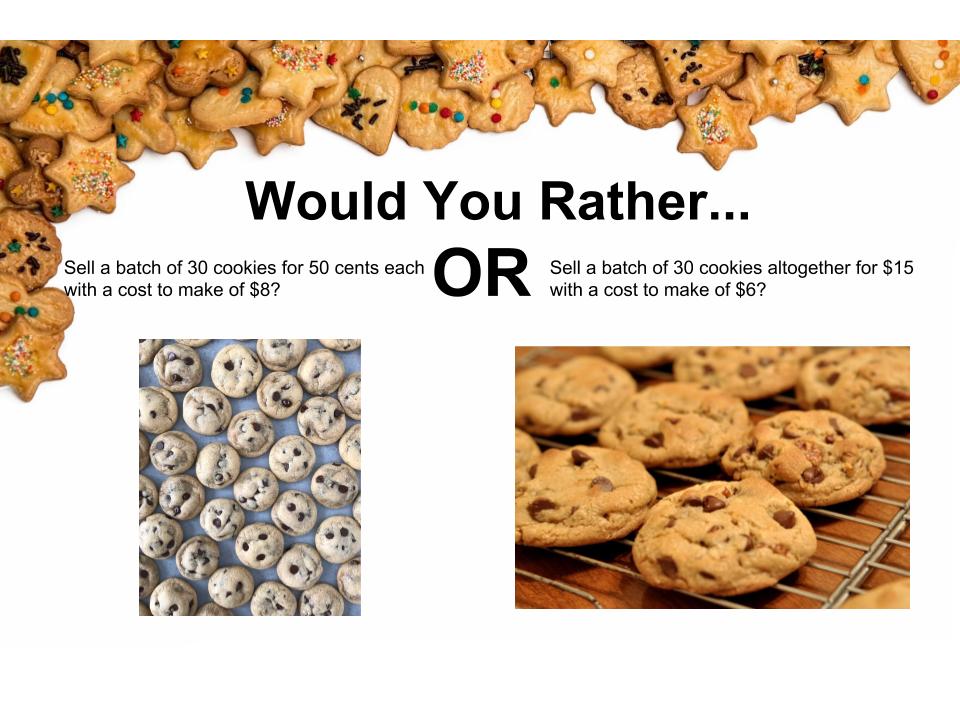Would You Rather 1 Dollar Or 2 Dollars: A Fascinating Look At Choices And Value
Apr 20 2025
Imagine this scenario: someone offers you a choice between receiving one dollar or two dollars. At first glance, the decision seems simple—two dollars is clearly better, right? However, delve deeper, and you'll uncover intriguing psychological, financial, and emotional dimensions to this seemingly straightforward question. Would you rather 1 dollar or 2 dollar can reveal more about your mindset than you might think. This article dives into the nuances of decision-making, value perception, and the hidden factors influencing your choices. Whether you're a financial guru, a psychology enthusiast, or just someone curious about human behavior, this exploration offers something for everyone.
Decision-making is an essential part of our daily lives, shaping everything from small purchases to life-altering choices. In the case of "would you rather 1 dollar or 2 dollar," the question acts as a microcosm of larger decisions we face. It invites us to think critically about what we value and why. By examining the psychology behind preferences, financial implications, and even cultural influences, we can gain insights into how and why we make certain choices. This article will guide you through these layers, offering practical knowledge and thought-provoking ideas.
As we proceed, you'll discover that the choice between one dollar and two dollars isn't as simple as it appears. Through expert insights, real-life examples, and actionable takeaways, this piece aims to enhance your understanding of decision-making and the value we assign to money. Whether you're here out of curiosity or seeking to improve your decision-making skills, the insights shared here will prove invaluable.
Read also:Lenoir Nc Discovering The Charm And Heritage Of A Hidden Gem
What Factors Influence Our Choices When It Comes to Money?
Money decisions often reflect deeper personal values, priorities, and even societal norms. When considering "would you rather 1 dollar or 2 dollar," several factors come into play. For instance, the perception of value can vary significantly based on individual circumstances. Someone with limited financial resources might view two dollars as a significant gain, whereas a wealthy individual might see little difference between the two options. Moreover, psychological biases such as loss aversion and cognitive dissonance can subtly steer our preferences, making the decision less rational than we think.
Why Does the "Would You Rather 1 Dollar or 2 Dollar" Question Matter?
This question might seem trivial at first, but it touches on broader themes of financial literacy, risk assessment, and personal priorities. It challenges us to think beyond the face value of money and consider what truly matters in our lives. For instance, would you prioritize immediate gratification over long-term benefits? Would you rather have a smaller sum now or wait for a larger amount later? These questions, while hypothetical, mirror real-world scenarios we encounter regularly. Understanding the motivations behind our answers can lead to better decision-making in areas like saving, investing, and spending.
How Does Culture Influence Our Perception of "Would You Rather 1 Dollar or 2 Dollar"?
Cultural background plays a crucial role in shaping our attitudes toward money. In some societies, saving and frugality are highly valued, while in others, spending and generosity take precedence. This cultural lens affects how we perceive the value of one dollar versus two dollars. For example, in a collectivist culture, the decision might be influenced by the potential to share the money with others, whereas in an individualistic society, personal gain might take priority. Recognizing these cultural nuances can deepen our understanding of financial decisions on a global scale.
What Are the Psychological Implications of Choosing Between 1 Dollar and 2 Dollars?
The psychology of money is a fascinating field that delves into why people make the financial decisions they do. When faced with the "would you rather 1 dollar or 2 dollar" question, cognitive biases often come into play. Anchoring, for instance, is the tendency to rely heavily on the first piece of information encountered when making decisions. If you initially think one dollar is sufficient, you might undervalue the additional dollar. Similarly, the endowment effect, where people ascribe more value to things they already possess, can sway your preference toward the initial option. Understanding these psychological mechanisms can help you make more informed choices.
What Are the Financial Implications of "Would You Rather 1 Dollar or 2 Dollar"?
From a financial perspective, the choice between one dollar and two dollars might seem negligible. However, when scaled up, these small decisions can have significant long-term impacts. For example, consistently opting for the smaller option in various financial situations can result in missed opportunities for wealth accumulation. On the other hand, always choosing the larger amount might lead to overspending or neglecting other financial priorities. Balancing these choices requires a solid understanding of personal finance principles and long-term goals.
Can "Would You Rather 1 Dollar or 2 Dollar" Teach Us About Opportunity Cost?
A key concept in economics, opportunity cost refers to the value of the next best alternative you give up when making a choice. In the context of "would you rather 1 dollar or 2 dollar," the opportunity cost might involve weighing the benefits of immediate versus delayed gratification. If you choose one dollar now, you might miss out on potential investments or savings opportunities associated with the second dollar. Conversely, waiting for two dollars might delay other financial opportunities. Evaluating these trade-offs is essential for making sound financial decisions.
Read also:Who Has The Longest Wingspan In Nba History Unveiling The Giants Of The Court
What Are the Practical Applications of This Thought Experiment?
While "would you rather 1 dollar or 2 dollar" might seem like a theoretical exercise, its applications extend to real-life situations. For example, in business, entrepreneurs often face decisions involving short-term gains versus long-term growth. Similarly, consumers must weigh the pros and cons of immediate discounts versus future rewards. By practicing thoughtful decision-making in small scenarios like this, individuals can develop better judgment for larger, more complex choices. This thought experiment encourages reflection and strategic thinking, skills that are invaluable in both personal and professional contexts.
Would You Rather 1 Dollar or 2 Dollar: A Reflection of Personal Values?
Your answer to "would you rather 1 dollar or 2 dollar" can reveal much about your core values and priorities. Are you more inclined toward simplicity and contentment, or do you strive for growth and expansion? These preferences often align with broader life goals, such as career aspirations, family commitments, and personal development. By examining your choices in this context, you can gain clarity about what truly matters to you and align your decisions accordingly.
Can "Would You Rather 1 Dollar or 2 Dollar" Be Used as a Teaching Tool?
Educators and parents can leverage this question to teach children and young adults about financial literacy, decision-making, and critical thinking. By presenting scenarios where the value of money is questioned, students can develop a deeper appreciation for the complexities of finance. Additionally, this thought experiment can spark engaging discussions about ethics, fairness, and the impact of financial choices on society. Incorporating such exercises into curricula can foster a generation of financially savvy individuals.
How Can We Improve Our Decision-Making Skills?
Improving decision-making skills involves a combination of self-awareness, knowledge, and practice. Start by identifying your biases and understanding how they influence your choices. Next, educate yourself on financial principles, psychology, and other relevant fields. Finally, practice making decisions in low-stakes environments to build confidence and refine your approach. The "would you rather 1 dollar or 2 dollar" question serves as an excellent starting point for this journey, offering a simple yet profound way to explore the art of decision-making.
Would You Rather 1 Dollar or 2 Dollar: A Gateway to Better Choices?
Ultimately, the "would you rather 1 dollar or 2 dollar" question is more than just a fun thought experiment. It's a gateway to better understanding yourself, your values, and your approach to decision-making. By reflecting on your answers and the reasoning behind them, you can gain insights that extend far beyond the realm of finance. Whether you're navigating personal relationships, career choices, or financial investments, the lessons learned from this question can guide you toward smarter, more intentional decisions.
Are You Ready to Reevaluate Your Choices?
Now that you've explored the depths of "would you rather 1 dollar or 2 dollar," are you ready to take a closer look at your decision-making process? Remember, every choice, no matter how small, contributes to the bigger picture of your life. By applying the principles discussed here, you can enhance your ability to make informed, value-driven decisions that align with your goals and aspirations. So, the next time someone asks you this question, take a moment to reflect—your answer might surprise you!
Conclusion: Embracing the Power of Choice
In conclusion, the "would you rather 1 dollar or 2 dollar" question offers a unique lens through which to examine our decision-making processes. By exploring the psychological, financial, and cultural dimensions of this choice, we gain valuable insights into how and why we make the decisions we do. Whether you're striving to improve your financial literacy, enhance your critical thinking skills, or simply better understand yourself, this thought experiment provides a powerful tool for growth. Embrace the power of choice and let it guide you toward a more fulfilling and purposeful life.
Table of Contents
- Would You Rather 1 Dollar or 2 Dollars: A Fascinating Look at Choices and Value
- What Factors Influence Our Choices When It Comes to Money?
- Why Does the "Would You Rather 1 Dollar or 2 Dollar" Question Matter?
- How Does Culture Influence Our Perception of "Would You Rather 1 Dollar or 2 Dollar"?
- What Are the Psychological Implications of Choosing Between 1 Dollar and 2 Dollars?
- What Are the Financial Implications of "Would You Rather 1 Dollar or 2 Dollar"?
- Can "Would You Rather 1 Dollar or 2 Dollar" Teach Us About Opportunity Cost?
- What Are the Practical Applications of This Thought Experiment?
- Would You Rather 1 Dollar or 2 Dollar: A Reflection of Personal Values?
- Can "Would You Rather 1 Dollar or 2 Dollar" Be Used as a Teaching Tool?


